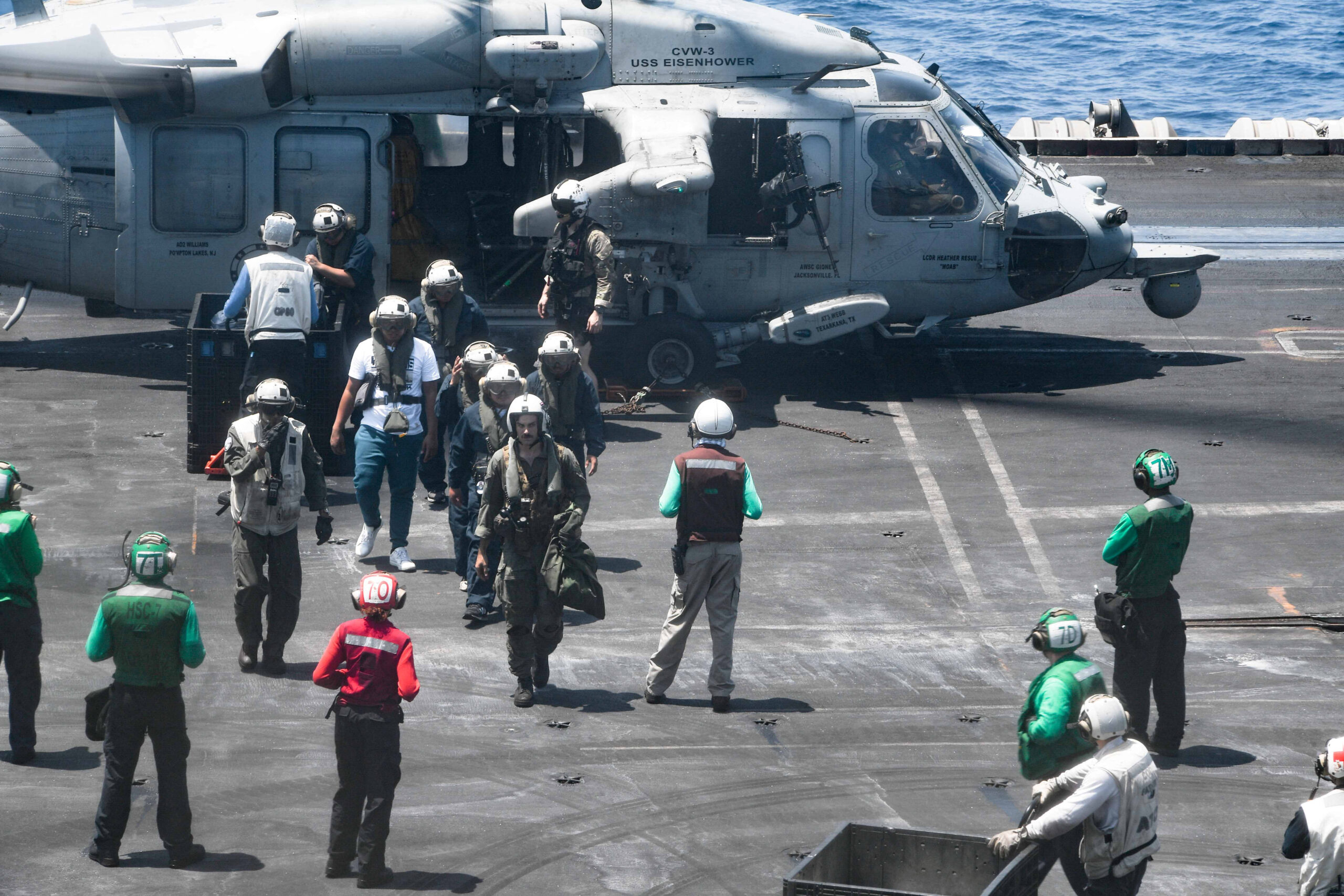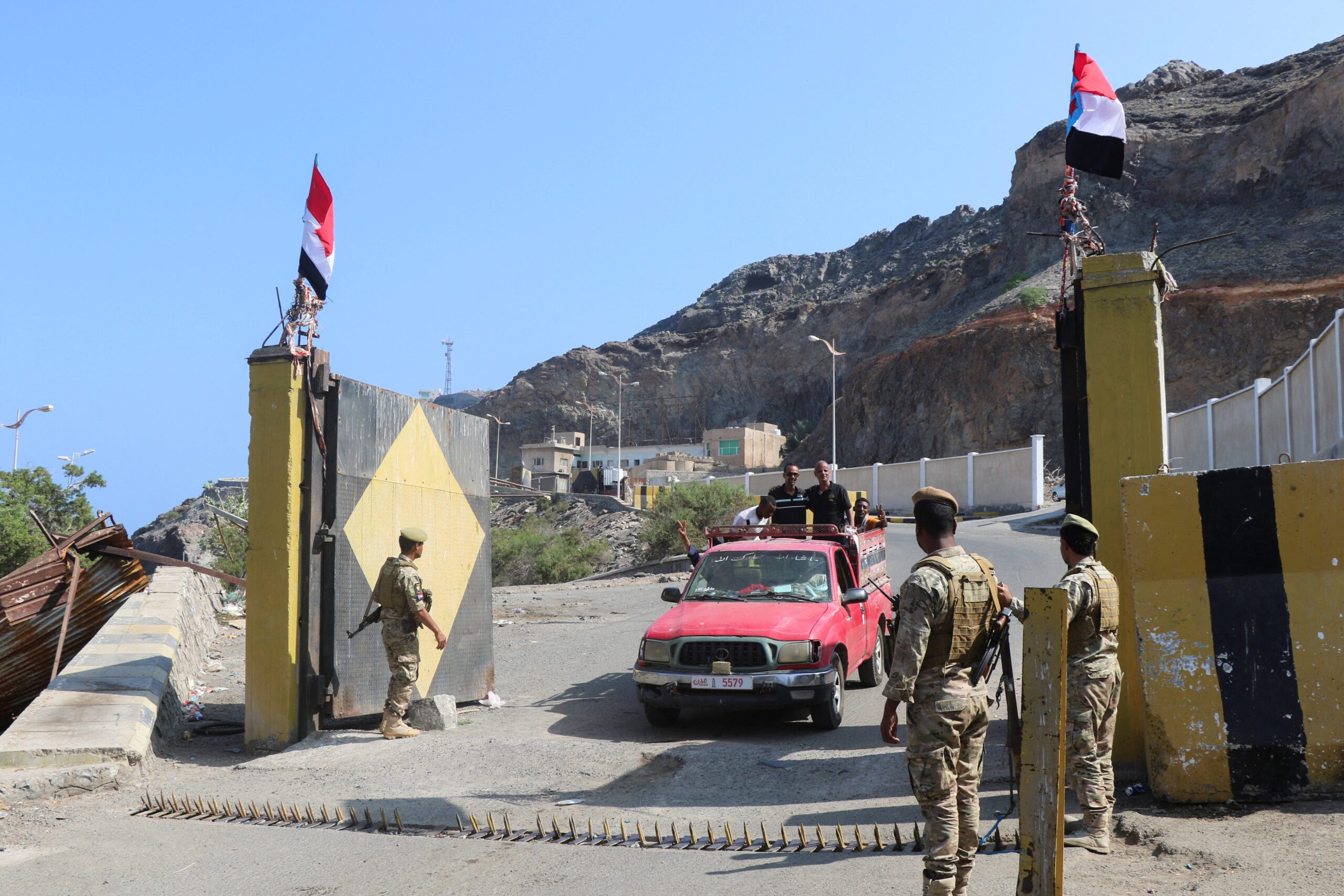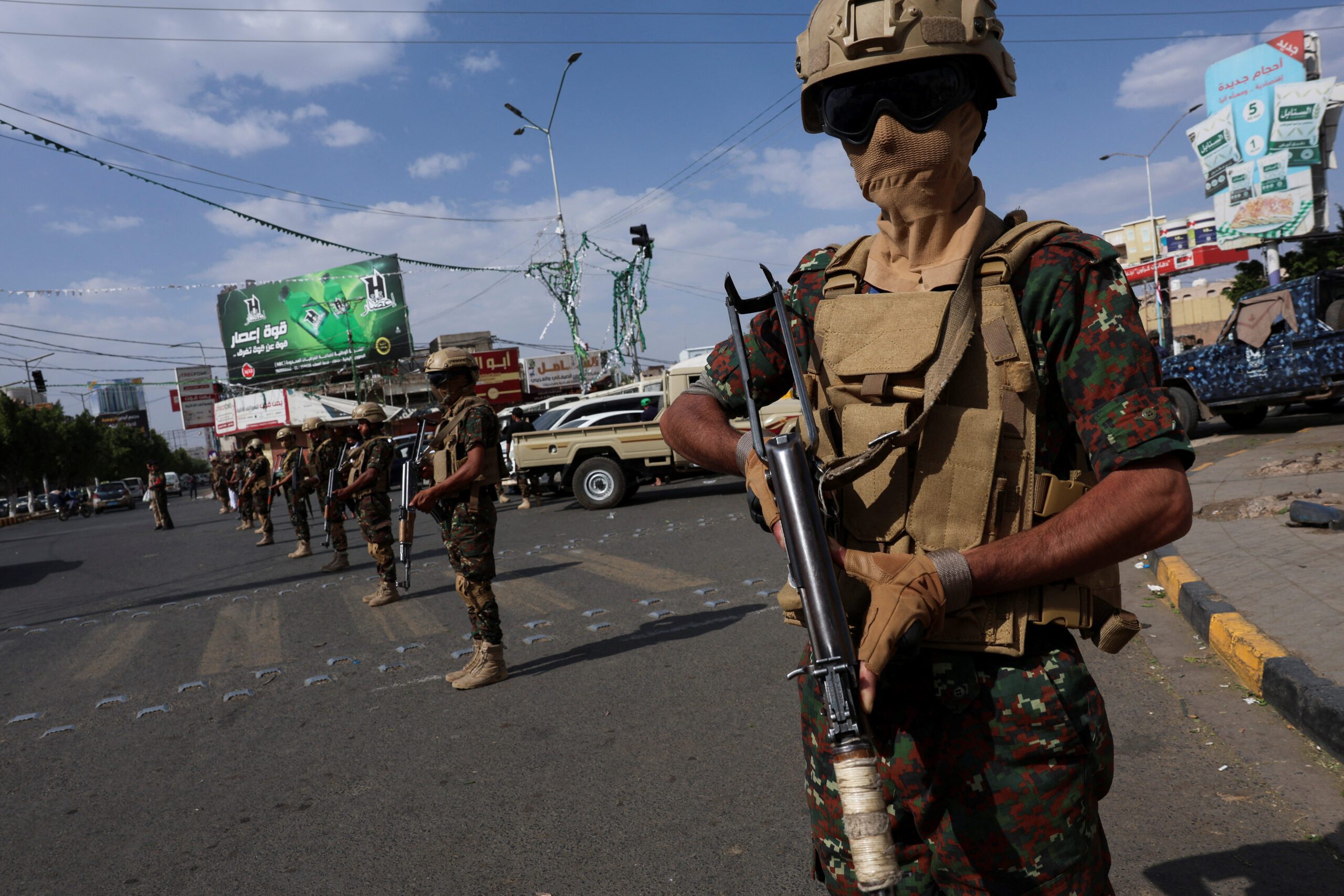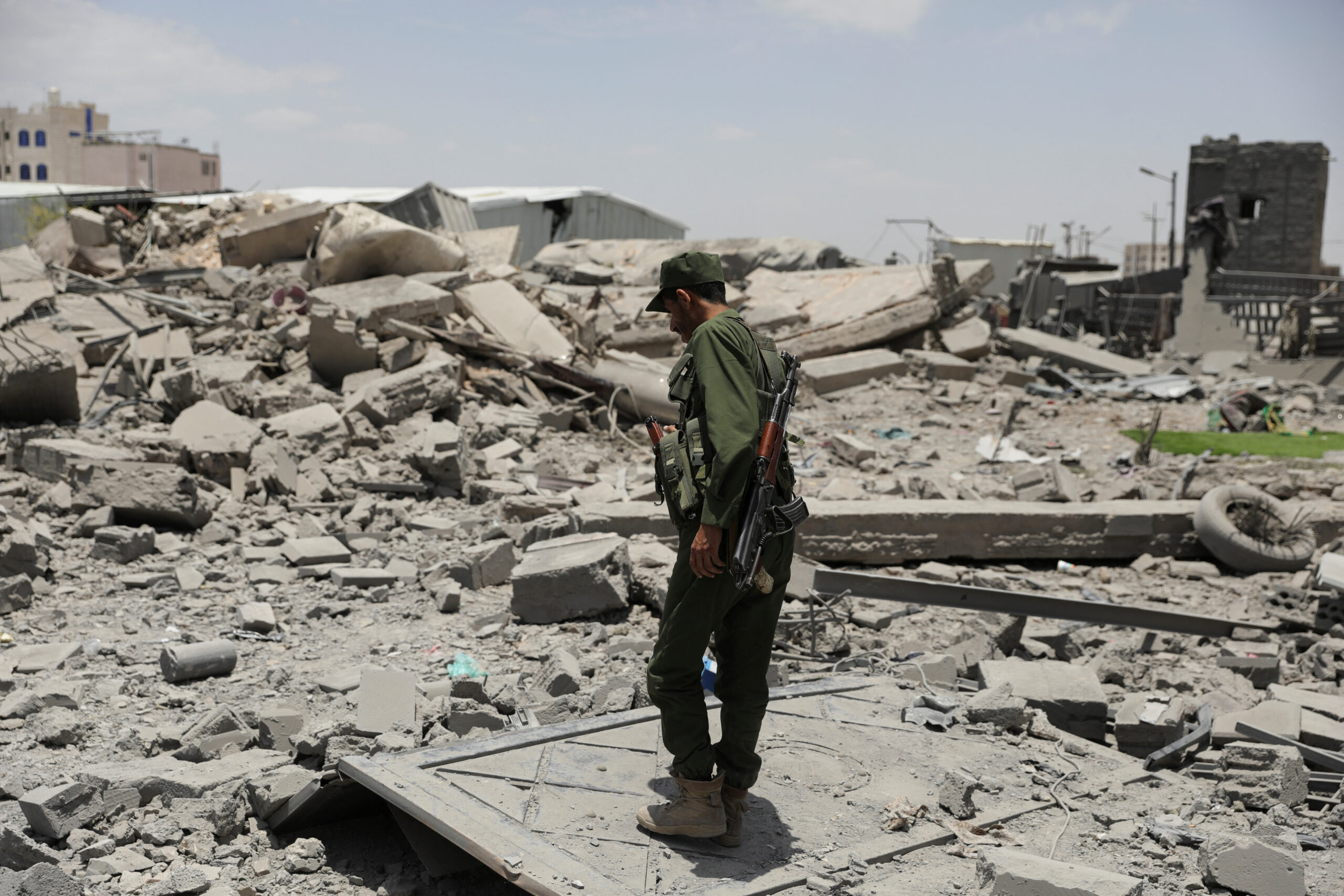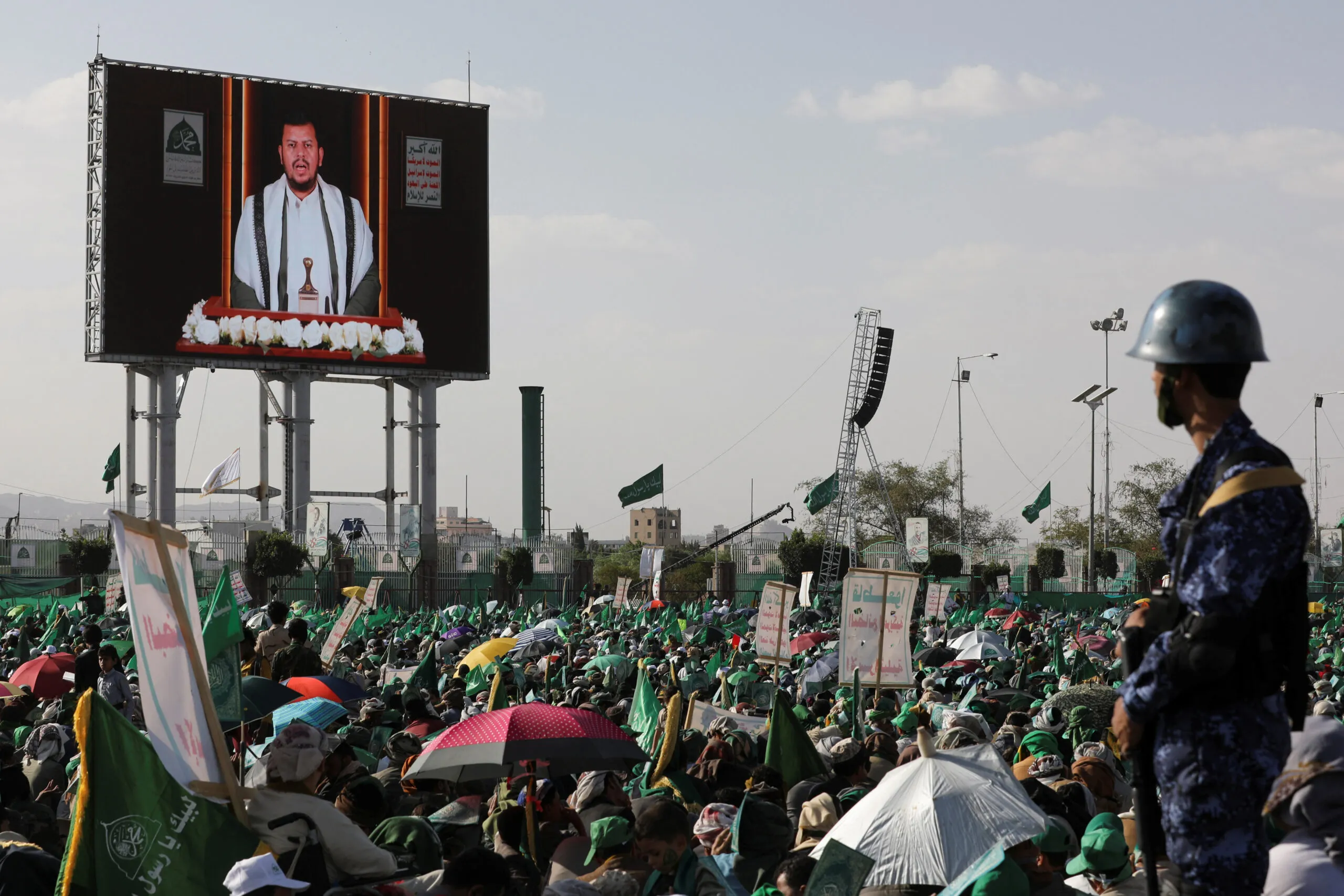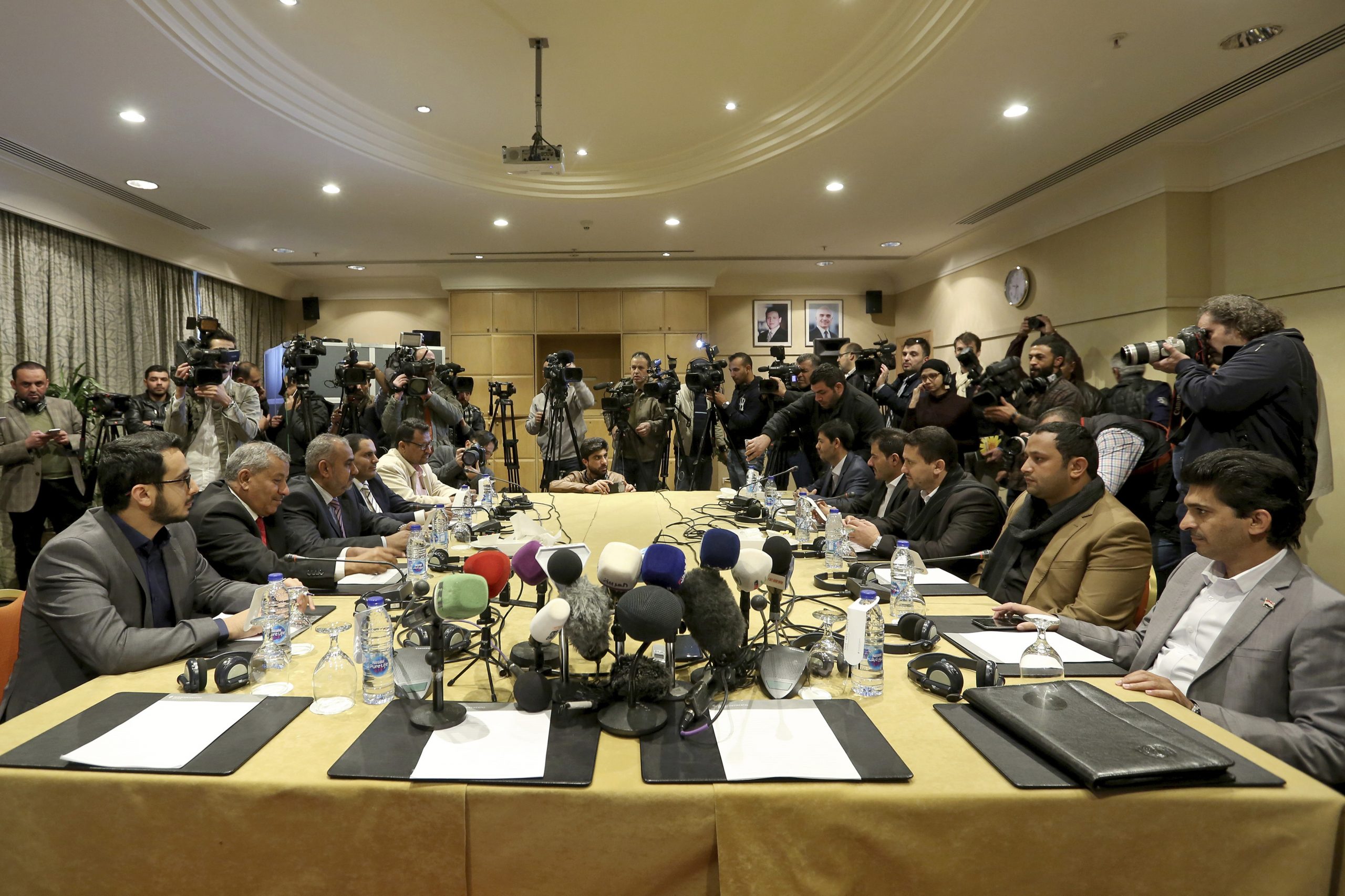Day One Problems: Yemen
No matter who wins the presidency in November, the United States will need a strategy that allows it to protect free and open trade in the Red Sea without becoming bogged down in an open-ended conflict in Yemen.
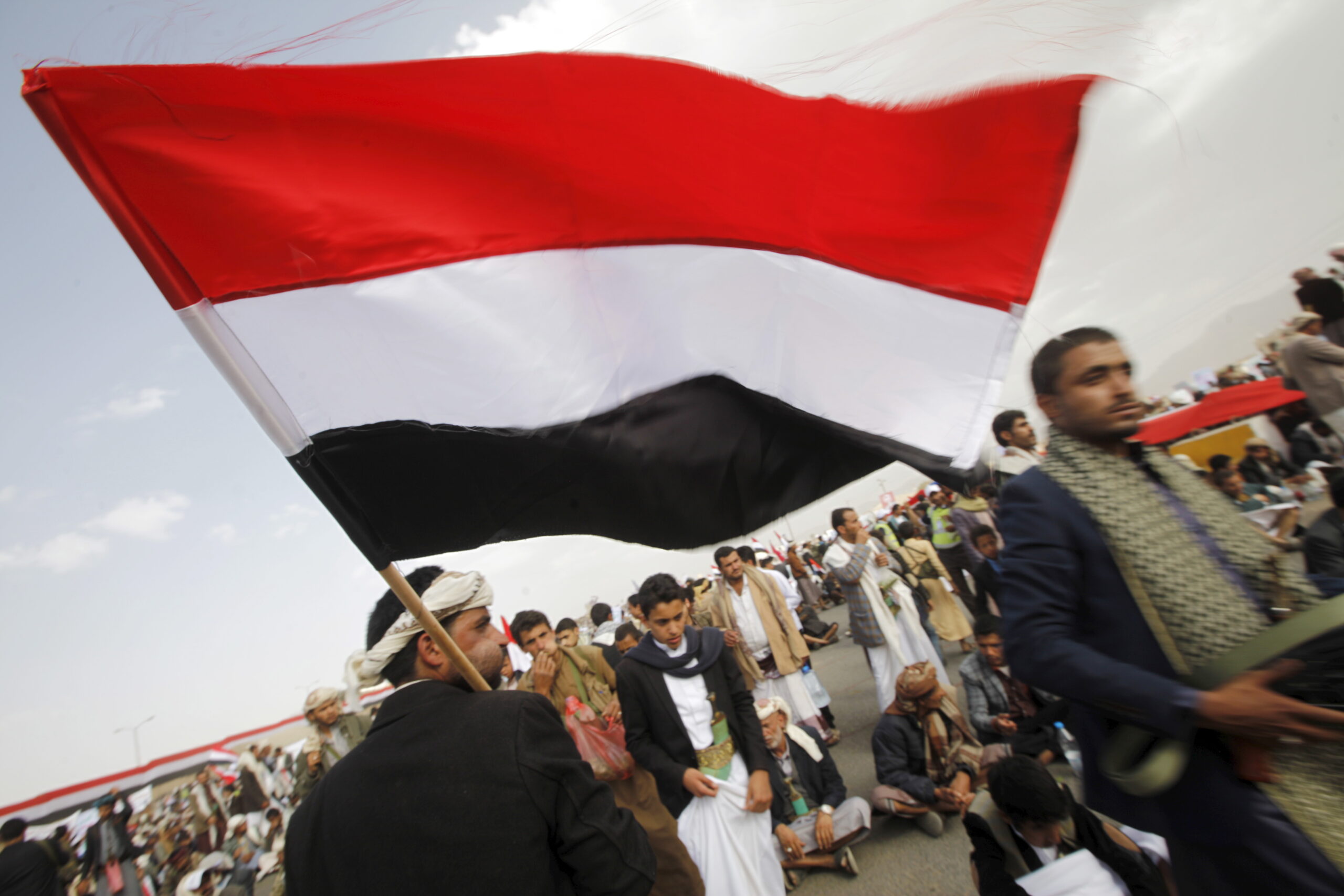
This publication is part of AGSIW’s U.S. Presidential Election series.
On January 20, 2025, either Vice President Kamala Harris or former President Donald J. Trump will be sworn in as the next president of the United States. Whoever takes the oath of office that day will face a host of national security challenges, from the war in Ukraine and China’s growing belligerency to the Israel-Hamas conflict, Iran, and a metastasizing terrorist threat. Somewhere on that list will also be the Houthis, the Iranian-backed militia that controls northern Yemen and, for much of the past year, has been attacking commercial shipping in and around the Red Sea.
According to the Congressional Research Service, the Houthis have carried out nearly 160 attacks threatening commercial and naval ships, which has led to a more than 50% decrease in ships traveling through the Red Sea and nearly 50% increase on insurance rates for ships that continue to pass through the Suez Canal. The container ships that avoid the Red Sea are forced to travel around the Horn of Africa, adding time, distance, and cost. All of these extra costs – both in time and money – are slowly being passed on to consumers.
The administration of President Joseph R. Biden Jr. has responded with a defend, deter, and degrade strategy. First, the United States wants to defend commercial and naval shipping in the Red Sea. Operationally, the United States and its allies have been largely successful, as the Houthis have succeeded in sinking only two ships, although they have damaged several more. But the frequency of Houthi attacks has contributed to commercial fears about utilizing the Red Sea. The second prong of the Biden administration’s strategy, deter the Houthis from carrying out future attacks, has failed. This is because the Houthis want this conflict with the United States for their own domestic political reasons. Similarly, the United States has been unable, despite multiple airstrikes, to degrade the Houthis to the point that they are unable to carry out future attacks.
The next administration – whether that of Harris or Trump – will need to chart a new course to overcome the shortcomings of the current U.S. approach.
The Harris Approach
A future Harris administration would most likely attempt to execute what might be called “Biden Plus.” Initially, the Harris administration would likely attempt to solve the Houthi problem by dealing with what it believes to be the root cause: namely the Israel-Hamas war. As a result, Harris would attempt to broker a cease-fire as a first step toward a peace deal. However, much like the Biden administration, the Harris administration would quickly find that it does not have as much leverage with Israeli Prime Minister Benjamin Netanyahu as it assumed.
In the likely event that the Harris administration would be unable to end the cycle of violence between Israel and Hamas, it would need an answer on what to do with the Houthis. This would likely result in a two-step approach. First, the United States would attempt to shut down the smuggling routes that bring Iranian weapons into Yemen. Second, finding itself boxed into a corner as the Houthis continue to attack commercial shipping in the Red Sea, the new administration would feel it must respond with more force. This would lead to a slow but gradual loosening of the targeting restrictions in Yemen. Instead of only defensive strikes or hitting Houthi missiles or weapons stores, the United States would likely find itself targeting a growing list of Houthi targets in an attempt to end the group’s attacks.
Unfortunately, neither of these steps is likely bring about the end state that the United States wants in Yemen: an end to Houthi strikes in the Red Sea. First, Iranian smuggling routes are both well established and diverse enough that the United States will have trouble making a significant dent in the weapons flow into Yemen, not to mention the significant number of weapons the Houthis already have on hand. Second, and perhaps most important, the Houthis want an escalation with the United States. The group is betting that it can absorb more punishment than the United States is willing to inflict. In much the same way that the group built its domestic base through years of Saudi and Emirati airstrikes, the Houthis believe two things: Air power alone can’t defeat them, and, the more strikes there are on Houthi targets, the stronger their domestic base of support will grow.
The Trump Approach
On January 19, 2021, Trump’s last full day in office, his administration designated the Houthis a “foreign terrorist organization.” The move, which was meant to box in the incoming Biden administration, was part of Trump’s “maximum pressure” campaign against Iran. After a monthlong review, the Biden administration removed the Houthis from the terrorist list in an attempt to end the fighting in Yemen.
Neither move, of course, worked. The Biden administration, despite some early efforts, was unable to bring about peace in Yemen and, three years on, the Houthis present a greater threat to the United States than they did when Biden took office. In January 2024, the Biden administration relisted the Houthis as a “specially designated global terrorist” group, but for all the debate in Washington over the impact of the designation, it has had little discernible impact on the Houthis’ ability to target commercial shipping in the Red Sea.
A second Trump administration would likely take two immediate steps. First, it would relist the Houthis as a foreign terrorist organization, which carries more weight than a specially designated global terrorist listing. Second, a new Trump administration would likely expand the target list in Yemen and, perhaps, even strike at high value targets, similar to what it did with the killing of the Islamic Revolutionary Guard Corps Quds Force chief, Major General Qassim Suleimani, in January 2020.
It is unlikely, however, that either of these steps would bring about an end to Houthi attacks in and around the Red Sea. A foreign terrorist organization designation would likely severely worsen an already alarming humanitarian crisis in Yemen, allowing the Houthis to further consolidate control. High-level targeted killings have shown some value in weakening terrorist groups, but the Houthis have survived and even thrived after the deaths of previous leaders. In fact, the founder of the movement, Hussein Badr al-Din al-Houthi, was killed (some say executed) 20 years ago. Instead of fracturing, the group has only grown stronger under the leadership of, first, Hussein’s father and, since 2010, his younger brother. The Houthis are not a problem a few well-placed missiles will solve.
A New Strategy
No matter who wins the presidency in November, the United States will need a strategy that allows it to protect free and open trade in the Red Sea without becoming bogged down in an open-ended conflict in Yemen. The end goals of such a strategy, however, are much easier to articulate than the means to achieve it.
The views represented herein are the author's or speaker's own and do not necessarily reflect the views of AGSI, its staff, or its board of directors.


